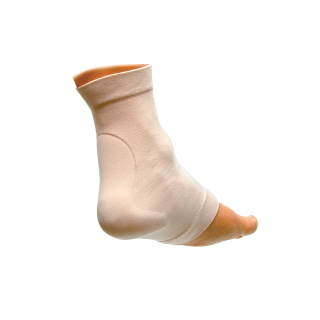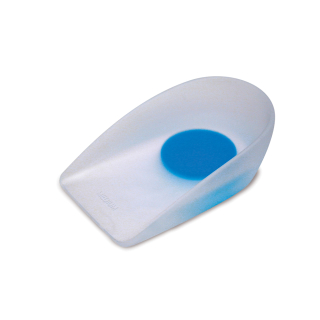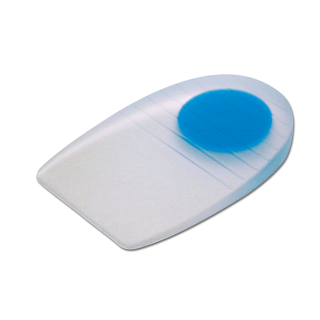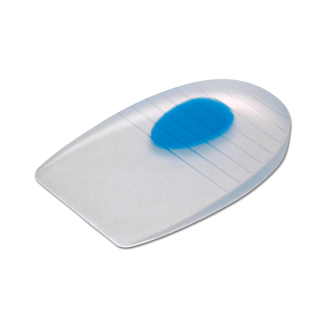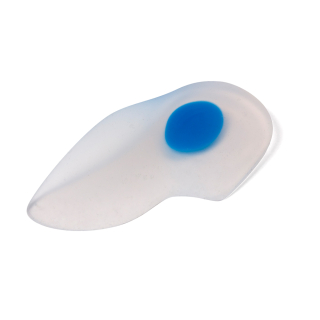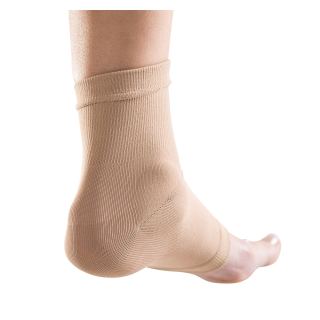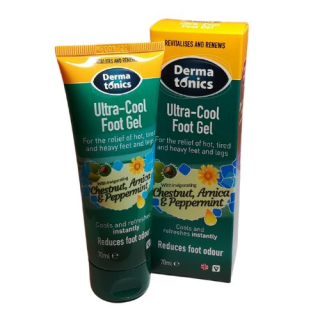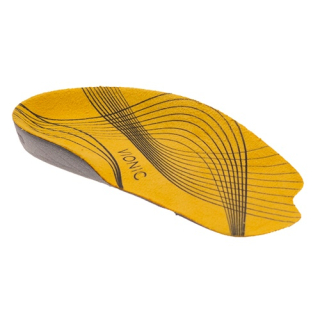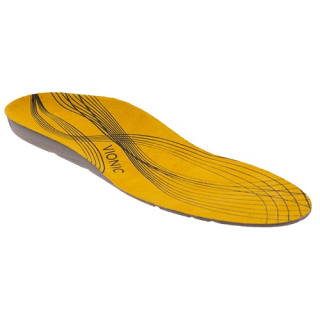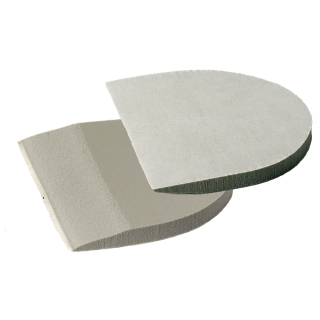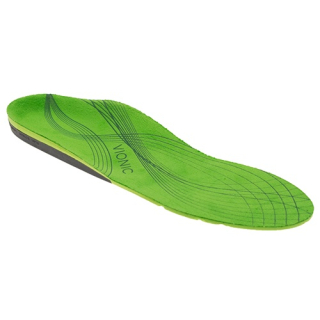Achilles Tendonitis
If you have diabetes, poor circulation or immunocompromised then can you please seek advice from a HCPC registered podiatrist.
Achilles Tendonitis Treatment Products
Orthopaedic Insoles To Soothe Your Symptoms
You don’t have to struggle at every step - our range of orthotics are designed to soothe the painful symptoms of Achilles tendonitis, so you can go about your day as normal.
With cushioned insoles, the sky is truly the limit, as you’ll feel lighter than air with every step. The products were created by podiatrists with the goal of easing symptoms such as arch pain. This is because they include shock absorption, designed to soften the impact of the ground on your foot at every step. This will also help limit the impact of trips and falls that could worsen the condition.
Targeted Relief With Heel Pads & Compression Socks
Target the root of the pain and ease it with our range of specialised supports. Heel pads are made for maximum shock absorption, as well as promoting a more natural gait.
Meanwhile, our range of compression socks are designed to help specifically target the achilles tendon. Products by reputable brands such as Bearhug have been proven to increase blood flow to the tendon. This increased blood flow then drives oxygenated blood to the ankle joint, providing pain relief and reducing inflammation, as well as promoting recovery. This means you can go about activities like running and walking worry-free!
Specially-Designed Shoes To Suit Your Needs
Walk around in support and style with professionally-designed orthopaedic shoes. Biomechanical orthotics make sure that your arch is supported. This can help re-align your gait, soothing symptoms of foot conditions such as achilles tendonitis. The classic, elegant designs available, such as loafers, will help make sure you’re looking and feeling your best. They can even be slipped on and off easily, without compromising on vital arch support!
Shop the range to take the first step towards recovery!
What Is Achilles Tendonitis?
The Achilles tendon connects the heel of the foot to the calf muscles at the back of your leg (calf region). It is the strongest tendon in your body. Achilles tendinopathy is when the Achilles tendon becomes swollen (inflamed) after an injury.
A tendon is a sheet of tissue that attaches muscle to bone and helps with the movement of a joint. Tendinopathy can occur in any tendon within your body; there are tendons around your knee, hips, elbows and shoulders.
What Causes Achilles Tendonitis?
Achilles tendinopathy can be caused by a variety of factors, including:
- Over pronation
- Over use through repetitive or intense strain on the tendon. This could be through sports, especially if only played at weekends.
- Age – tendons get weaker as we age
- Leg length difference
- High arched feet
Risk Factors For Achilles Tendonitis
Some conditions and lifestyle factors can put you at higher risk of the condition, such as:
- Diabetes
- Inflammatory arthropathies – rheumatoid arthritis
- High cholesterol levels in your blood
- Overweight / obesity
- Some antibiotics – quinolone
- Steroid injections in the tendon or surrounding area
- High dose steroid tablets
- Some Statin tablets to lower cholesterol
Main Signs & Symptoms Of Achilles Tendonitis
Generally, the condition can be characterised by symptoms such as:
- Swelling in the area of the tendon (just above the heel) which may also be hot and red.
- A sharp, constant pain when you walk or run, just above your heel.
- Problems moving the ankle up and down, without pain at the back above your heel.
- A popping, cracking, grating sensation – this could, if not treated, lead to a rupture of the tendon.
Other symptoms may include:
- Severs disease in children, especially sporty children
- Calcaneus fracture (heel bone)
- Haglund’s deformity – a bone out growth on the back of your heel from excessive pronation.
Treatment For Achilles Tendonitis
Conscious Rest
It’s recommended that you reduce your activity levels, where possible. Also, you should try not to walk in flat shoes or barefoot. Instead, wear a small heel or heel raising pad to reduce the tension in the area. 10mm is suggested, however this may not fit into your footwear. In this case, you would benefit from a 6-8mm heel raise.
It’s important that you try not to sit in the same position for long periods when working at a desk, or sitting on the sofa. Don’t sit with your legs bent underneath you.
Use Cold Therapy & Start With Gentle Stretching
You can use cold therapy to reduce the swelling. This consists of an ice pack wrapped in a towel for 20 minutes, three times per day.
When getting up in the morning, do some gentle stretching before getting out of bed – try writing the alphabet with your toes, moving your toes towards your leg and then pointing towards the bed.
Once the problem has settled down, you can ease back into activity gradually. You should always warm up before exercise. Gently stretch the area whenever you are going back to activity levels that have previously prompted the problem to occur – reducing the chances of more Achilles tendon problems.
Stay Supported
The use of orthotics to control rearfoot pronation may be useful. If you aren’t sure about the insole required, then see a Podiatrist.
Wear supportive footwear – a good pair of running trainers have a life span of approximately 500 miles before they need replacing.
Get Expert Guidance
Achilles injuries can be stubborn. If your pain has been present on and off for a number of years then consult with a specialist podiatrist, or contacting your GP for referral to a physiotherapist. Or, in severe cases, an orthopaedic surgeon may be the best option.
FAQs
What Is The Best Orthotic Support For Achilles Tendonitis?
The best support for you depends on the severity of your condition. It is recommended that you seek expert advice. A podiatrist will be able to recommend you specialised supports such as orthotic insoles, compression socks and heel pads.
What Is The Best Running Support For Achilles Tendonitis?
To soothe symptoms of achilles tendonitis, you should always wear properly fitting footwear. Ideally, this should also be orthopaedically designed to suit your foot, as well as using shock-absorption technology. This will limit the impact of the ground on your foot and the joint itself. Compression socks reduce inflammation, providing pain relief and support for the joint. You can also get insoles and heel pads that target specific areas of the foot.
How Long Will It Take For Achilles Tendonitis To Heal?
Generally, achilles tendonitis should heal within 2-3 weeks with at-home treatment. If your symptoms last longer than that, you’re in a lot of pain, or think you’ve ruptured a tendon, you should seek treatment urgently.



